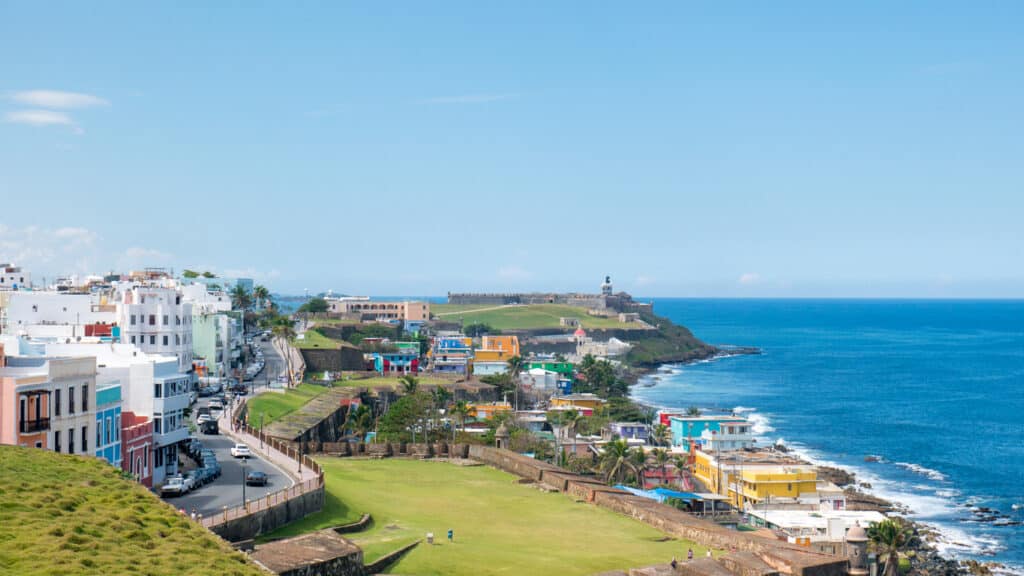If your retirement fantasy involves swaying palm trees, $3 plates of pad thai, and the occasional temple visit to balance out your beach days, you might be ready to retire in Thailand.
For U.S. citizens—and plenty of other expats from Malaysia to Europe—it’s the ultimate mix of year-round warmth, a cost of living that makes your savings stretch, and a lifestyle that can be as laid-back or as adventurous as you want. Add in friendly visa options, world-class healthcare that won’t bankrupt you, and a cultural richness that’s hard to match, and it’s easy to see why so many are trading snow shovels for sandals.
Key 2025 Updates
- The Non-Immigrant O-X visa now allows up to 10 years’ stay for retirees aged 50+, with financial requirements starting at 3M THB deposit or 1.8M THB plus 1.2M THB annual income.
- The LTR (Long-Term Resident) visa now accepts retirees who meet investment or asset thresholds, even without $80K annual income.
- OA requires 400k inpatient/40k outpatient coverage; some missions still require proof of COVID coverage (3,000,000 THB / $100k).”
The first step to retiring in Thailand
The first step to retiring in Thailand is securing the right visa—most often, the Thai retirement visa. It’s your golden ticket to staying in the country long-term, enjoying the beaches, the rich culture, and the lower cost of living that draws expats from all over the world.
To qualify, you’ll need to meet some basic eligibility rules:
- Age: You must be at least 50 years old.
- Employment: You can’t work in Thailand while on this visa.
- Financial proof: Either at least 800,000 THB (about $22,000 USD) in savings, or monthly retirement income of at least 65,000 THB (about $1,800 USD), or a combination of the two.
Applications can be made through a Thai embassy in your home country or at an immigration office in Thailand. You’ll need to show proof of funds in either USD or Thai baht, along with standard documents like your passport, bank statements, and, if converting from another visa type, proof of legal stay.
💡 Pro Tip:
Exchange rates can impact whether you meet the income threshold—plan ahead to avoid a nasty surprise when it’s time to renew.
How much money do you need to retire in Thailand?
How much money you’ll need to retire in Thailand depends on your lifestyle, but the good news is this: your dollars go far here. Many retirees live very comfortably on $3,000 a month, while $2,000 can still cover a pleasant life—especially outside high-cost areas like central Bangkok or Phuket’s beachfront.
When budgeting, remember that the Thai retirement visa has a financial requirement: either 800,000 THB in savings or monthly income of at least 65,000 THB. That means your retirement savings or pension plan isn’t just about lifestyle—it’s tied to your ability to stay in the country.
Here’s a ballpark look at monthly expenses in Thailand (in USD and THB):
- Rent: $400–$1,000 (14,000–35,000 THB) depending on location and size.
- Health insurance: $75–$200 (2,600–7,000 THB) for private coverage.
- Food: $300–$500 (10,500–17,500 THB) if you mix street food with Western groceries.
- Transportation: $30–$100 (1,050–3,500 THB) for public transit, taxis, or scooter fuel.
- Flights home: Budget $800–$1,500 per trip if you plan annual visits.
💡 Pro Tip:
Keep an eye on the USD–THB exchange rate—currency swings can impact both your monthly costs and whether you meet visa renewal requirements.
The Thailand retirement visa: What you need to know
For many U.S. retirees, the Thailand retirement visa is the golden ticket to settling in for the long term. You can choose from two main options:
- Non-Immigrant O: Often used by retirees already in Thailand.
- Non-Immigrant OA: Typically for applicants abroad, with extra requirements like police clearance and medical certificates.
Financial requirements are non-negotiable. You’ll need to show either:
- 65,000 THB/month in income, or
- 800,000 THB in a Thai bank account (held for at least two months before applying).
You’ll also need valid health insurance that meets the government’s minimum coverage, and you may need to maintain it for as long as you hold the visa.
While the visa fee is modest (around 1,900–2,000 THB), budget for extras: medical insurance premiums, paperwork, and—if you’d rather not wrangle Thai bureaucracy yourself—agent fees.
Perks of the visa include:
- Staying long-term without constant visa runs
- Opening a local bank account
- Owning certain types of real estate
- Accessing services like utilities and mobile plans with less hassle
Renewal happens yearly, and you’ll need to prove you still meet the income or savings threshold. Plus, expect a 90-day check-in at your local immigration office to confirm your address.
💡 Pro Tip:
Keep your Thai bank balance comfortably above the minimum all year—falling short, even briefly, could cause big headaches at renewal time.
Cost of living for retirees in Thailand
Thailand’s cost of living is one of the big reasons retirees flock here—you can enjoy a comfortable, even luxurious lifestyle for far less than in the U.S.
A sample monthly budget for a retiree might look like:
- Housing: 15,000–35,000 THB for a furnished apartment or small house (more for prime city or beachfront views)
- Food: 8,000–12,000 THB if you mix street food with the occasional restaurant splurge
- Utilities and internet: 2,500–4,000 THB
- Healthcare and insurance: 5,000–15,000 THB depending on coverage
- Transportation: 1,500–3,000 THB (public transport is cheap, taxis and rideshares add up)
- Extras: Domestic help, entertainment, and travel—budget 5,000–10,000 THB
Location matters. In Bangkok or Chiang Mai’s trendiest neighborhoods, expect higher rent and restaurant prices. Move to a smaller town or inland province and costs can drop dramatically, letting your retirement income stretch further.
Affordability also comes from:
- The availability of fresh, inexpensive street food
- Low-cost public transportation
- Reasonably priced domestic help for cooking, cleaning, or gardening
- Lower real estate costs if you buy instead of rent
💡 Pro Tip:
Even if you can comfortably spend more, living within the 65,000 THB/month income requirement for the non-immigrant retirement visa is a smart way to align your budget with visa renewal rules.
Best cities in Thailand for retirees
Thailand has no shortage of retirement destinations, but the “best” city depends on how you want to spend your days—and how much you want to spend.
- Chiang Mai: Mountain views, cooler weather, a thriving expat community, and one of the lowest costs of living in the country. Perfect if you want laid-back living with easy access to cafés, markets, and modern amenities.
- Bangkok: The capital offers world-class healthcare, international dining, and endless entertainment—but it comes with the noise, traffic, and slightly higher prices you’d expect from a major city.
- Hua Hin: A smaller coastal city that’s quiet without being isolated. Known for golf courses, clean beaches, and excellent hospitals—popular with retirees looking for a calmer pace.
- Phuket, Pattaya, Koh Samui: Scenic island or beach living with plenty of tourist infrastructure. Great for water sports lovers, but expect more seasonal crowds and higher rental prices in prime spots.
Which is best for expats in 2025? If you value community and low cost of living, Chiang Mai still tops the list. For retirees who want quick access to international flights and high-end healthcare, Bangkok wins. Beach lovers should look to Hua Hin for balance or Phuket for a purely coastal lifestyle—just remember your budget will need to keep up with the view.
💡 Pro Tip:
Wherever you choose, make sure your retirement budget comfortably clears the 65,000 baht/month visa requirement so you can focus on enjoying your new home instead of stressing over paperwork.
Healthcare in Thailand: High quality at low cost
For many expatriates considering an extended period in Thailand, healthcare is one of the biggest deciding factors—and it’s an easy win here. The country’s healthcare system is modern, well-equipped, and far more affordable than what most retirees are used to in the U.S. or Canada.
- Hospitals and clinics: Thailand has a strong mix of public hospitals and world-class private facilities, many with English-speaking doctors and staff who are used to working with international patients.
- Costs: Routine checkups, surgeries, and even long-term care are often a fraction of U.S. prices. A procedure that might cost $20,000 in the U.S. can often be done in Thailand for under $5,000—without compromising quality.
- Insurance options: Retirees can choose from local private health plans, international policies, or public access in some cases. If you’re on a non-immigrant visa, you’ll need coverage that meets Thai immigration or embassy requirements.
- Standards of care: From Bangkok’s sleek private hospitals to Chiang Mai’s respected medical centers, care is not only affordable but also comparable—sometimes superior—to what you’d find in Western countries.
💡 Pro Tip:
If you plan to live in Thailand long-term, consider an international health insurance plan that covers both treatment in Thailand and trips back home, so you’re protected wherever you are.
U.S. taxes while living in Thailand
Moving to Thailand might change your view of sunsets and street food, but it won’t change your relationship with the IRS. U.S. citizens are required to file a federal tax return every year, no matter where in the world they live.
- Social security and retirement income: You can still collect Social Security benefits while living in Thailand, but they remain taxable by the U.S. depending on your total income.
- Expat tax breaks: Many retirees and expatriates qualify for the Foreign Earned Income Exclusion (FEIE) or the Foreign Tax Credit (FTC), which can reduce or even eliminate U.S. tax on certain income.
- Income abroad: If you work, freelance, or run a business during your retirement—or invest in Thai real estate—those earnings may create additional U.S. (and possibly Thai) tax obligations.
- Filing complexity: You may need to file extra forms like the FBAR or FATCA reports if you have money in Thai bank accounts.
💡 Pro Tip:
A cross-border tax advisor can help you navigate the rules, make the most of exclusions and credits, and keep your visa application process smooth by ensuring your finances are in good order.
Is retiring in Thailand right for you?
Retiring in Thailand can mean mornings in a Chiang Mai café, afternoons on a Hua Hin beach, and evenings at a Bangkok night market—all for far less than life back home. With its warm climate, low cost of living, vibrant culture, and excellent healthcare, it’s easy to see why so many retirees make the move.
But moving abroad isn’t just about sunsets and street food—it’s also about keeping your finances and taxes in order. Bright!Tax helps U.S. citizens abroad navigate IRS rules, optimize tax strategies, and stay compliant without stress.
Ready to make Thailand home and keep tax headaches off the guest list? We’ve got you covered.
Frequently Asked Questions
-
Can I really live comfortably in Thailand on $2,000 a month?
Yes—especially outside Bangkok, Phuket, or other high-demand areas. In Chiang Mai or Hua Hin, $2,000 USD can cover rent for a modern apartment or small house, utilities, groceries, eating out several times a week, transportation, health insurance, and still leave room for travel or hobbies.
-
Do I need to speak Thai to live there?
You can get by in English in most expat-heavy areas and larger cities, but outside tourist zones, Thai is the primary language. Learning a few phrases not only makes daily life easier but also helps build friendships and trust with locals.
-
What’s the difference between the Non-Immigrant O and OA visas?
The Non-Immigrant O can often be applied for in Thailand and renewed annually with proof of income or savings. The OA is issued before arrival, covers a full year, and requires more upfront documentation, including proof of medical insurance. Both require you to meet the financial thresholds—either 65,000 baht per month in income or 800,000 baht in a Thai bank account.
-
Will I pay U.S. taxes if I retire in Thailand?
Yes. U.S. citizens must file a federal tax return every year, no matter where they live. Depending on your income sources, you may be able to reduce or eliminate U.S. tax using the Foreign Earned Income Exclusion (FEIE) or Foreign Tax Credit (FTC), but investment and pension income may still be taxable.
-
How good is healthcare for foreigners?
Thailand’s private healthcare system is excellent, with internationally accredited hospitals, modern facilities, and English-speaking doctors. Costs are significantly lower than in the U.S.—often 50–80% less for comparable treatments. Many retirees choose private health insurance to ensure access to top-tier facilities.
-
Can I bring my pets?
Yes, but you’ll need to meet Thailand’s import requirements, which include a rabies vaccination at least 21 days before travel, a veterinary health certificate, and an import permit from Thailand’s Department of Livestock Development. Pets may be inspected on arrival and, in some cases, quarantined briefly.

 Connect on LinkedIn
Connect on LinkedIn

